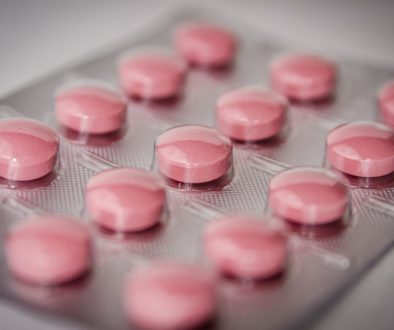The Effects of Acid Reflux On Teeth
 Acid reflux (also known as GERD or heartburn) occurs when acid from your stomach moves upward through your esophagus. This causes a burning pain in your chest that can spread all the way up into your throat. Some of this acid can make its way all the way up in your mouth where over time it can cause damage to your teeth.
Acid reflux (also known as GERD or heartburn) occurs when acid from your stomach moves upward through your esophagus. This causes a burning pain in your chest that can spread all the way up into your throat. Some of this acid can make its way all the way up in your mouth where over time it can cause damage to your teeth.
In the early stages, the enamel on the back side of your top teeth will start to lose it’s glossy appearance and take on a more chalky look. This is a result of the breakdown of the top layer of enamel. Over time the surface of the tooth will continue to wear away. If you grind, this process will oftentimes progress much more quickly. Let’s take a look at some of the ways you can help control this process…
Diet and Lifestyle Changes:
- Avoid eating meals three hours before bedtime.
- Don’t lay down after eating.
- Eat small meals more frequently throughout the day. Large meals stimulate more acid production.
- Avoid alcohol
- Lose weight
- Stop smoking
- Avoid certain foods which are greasy, spicy, fatty, or acidic as well as caffeine, chocolate, citrus, and tomato based foods.
Medications:
- Antacids – Tums and other similar medications contain calcium carbonate which helps neutralize the excess acid in your stomach. You shouldn’t use these daily for more than three weeks as they can cause the build-up of certain minerals in your body.
- H-2 Blockers – These include Tagamet, Pepcid, Zantac, and Axid. They work by temporarily stopping acid production in the stomach and must be taken at least one hour before meals. They don’t reduce acid that is already in your stomach.
- Proton pump inhibitors – These include Prilosec, Nexium, Prevacid, Aciphex, and Protonix. These are the most effective heartburn medications but must be taken consistently in order to work. They work by blocking an enzyme that produces acid in your stomach.
Remineralizing Your Teeth
- The acid works to demineralize your teeth. Your goal is to add those minerals back, usually in the form of fluoride.
- Brush twice a day for two minutes with a non-abrasive fluoride toothpaste.
- Ask your dentist for a prescription strength fluoride toothpaste such as Prevident.
- Use a fluoride containing mouthwash either 30 minutes before or 30 minutes after brushing and flossing.
- Ask for a fluoride treatment at each 6 month dental visit. This can come in several forms including a varnish, a gel, or foam.
Avoid Damage to Your Teeth
- Any episodes of reflux will make your mouth an acidic environment. Avoid brushing immediately after these episodes as the enamel is temporarily weaker and toothbrushing can speed up the loss of surface enamel.
- If you grind, wear a nightguard. Grinding can also accelerate the tooth wear.
- Have the dentist fix any chips or worn areas if possible.



